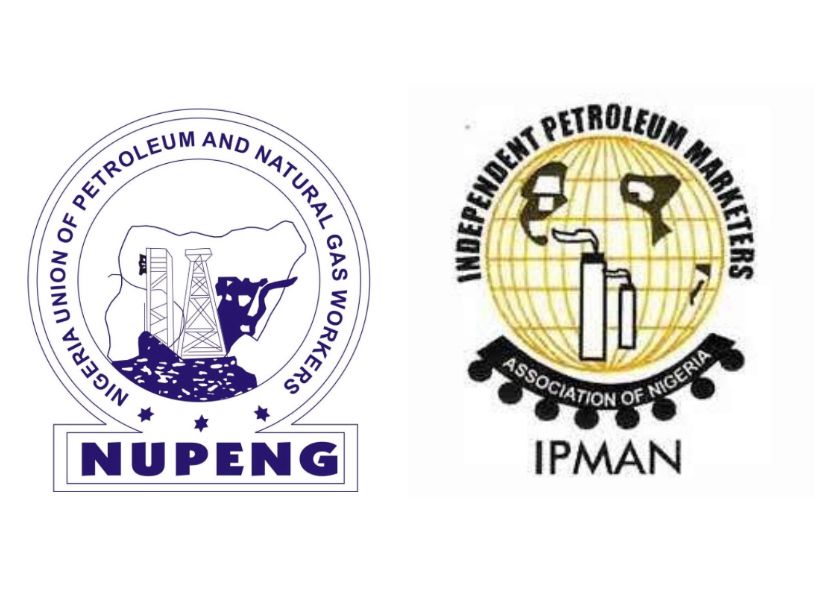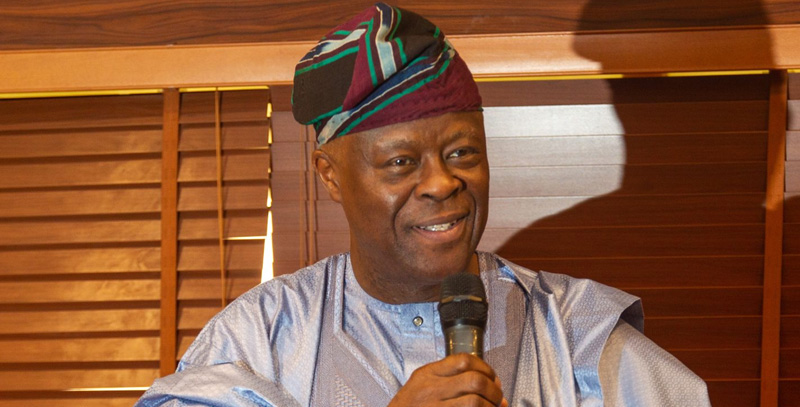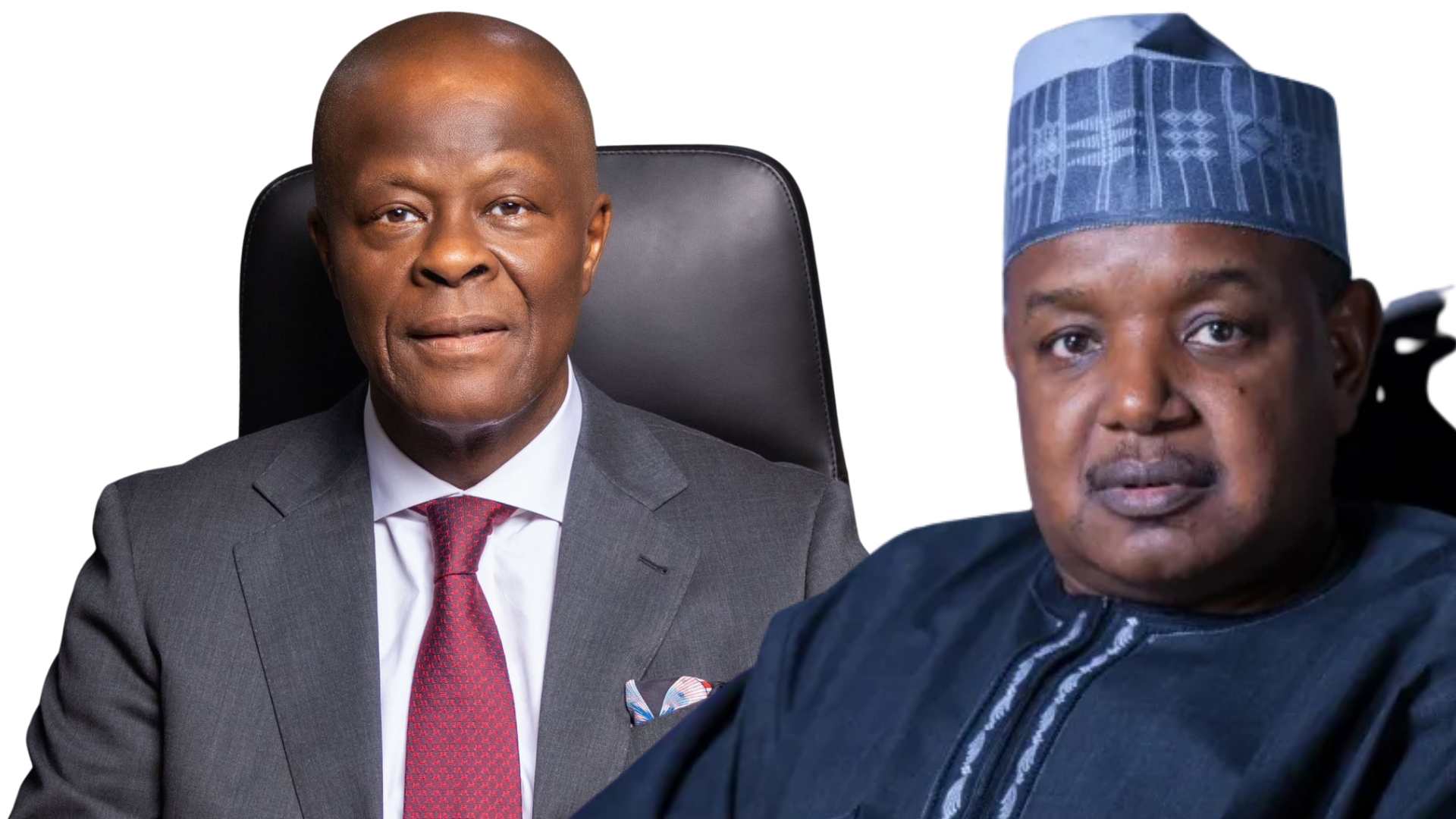Bola A. Akinterinwa
In international politics and relations, a distinction is often made between diplomacy and force, especially in the mediation of disputes between Member States of the international community. The use of force is often equated with war. In this regard, adoption of the principles of conciliation, reconciliation, mediation, judicial settlement, negotiation, adjudication, etc., are considered as acceptable means of peaceful settlement of disputes. Anything outside of these recommended principles or requiring any forceful means is considered unacceptable. It is seen as belligerent and therefore outlawed.
Today, the use of force has become synonymous with another form of diplomacy in which case diplomacy is also forceful by intention, by attitude and by behaviour. For example, all the various principles of peaceful means of settling disputes are internationally regulated. A mediator must not have partisan interest and must be acceptable to the disputants. However, in the most recent Israelo-Iranian conflict, the US President, Donald Trump, not only aggressed Iran by bombing its nuclear sites in Fordow, Isfahan and… but directed Iran to accept US-dictated terms for diplomatic negotiations and peaceful coexistence.
This situation raises a rivalry between the principles of pacta sunt servanda and legitimate self-defence. War is an expression of diplomacy and diplomacy can also be an act of war. In other words, the US-Iranian conflict reflects the use of force or war as diplomacy as distinct from the understanding of war as an instrument of diplomacy. War as diplomacy always comes after the failure of diplomacy in which case diplomacy follows an end of war while diplomacy as war is always a first action. The threat of use of force is first manu militari in character. When this is followed with the actual use of force, it then becomes a war in which the use of diplomacy becomes a failure or far-fetched. This is the message sent to the world by the US-Israel-Iranian conflict, and particularly with the Iranian bombing of the United States flag military airbase in Ubeid in Qatar. But how do we understand the rivalry of principles?
Pacta Sunt Servanda and Israel-Iran Conflict
The discussion of the principle of pacta sunt servnada, in terms of its origin, practice, and challenges in international relations, largely arises from Donald Trump’s foreign policy of ‘Making America Great Again,’ which involves reckless foreign policy behaviours, and attraction of unnecessary and mounting anti-Americanism in global politics. As a result, American influence in global politics has been on the decline as most recently evidenced by the newly-found entente between Canada and the European Union (EU).
The meeting of Canadian Prime Minister, Mark Carney, with the EU on Monday, June 23, 2025, provided a unique opportunity for Canada, not only to tame the United States of Donald Trump and to cut the United States to its normal size, but also to particularly and directly raise the issue of pacta sunt servanda and national sovereignty. True, Canada has bilateral agreements and understandings with the United States of President Trump but Donald Trump does not, stricto sensu, believe in sanctity of agreements.
At the 23rd June 2025 EU-Canada Summit, Canada reached an agreement with the EU on a €150 billion defence procurement programme, also called ReArm Europe. The agreement enables Canadian companies ‘access to European contracts and locks us (Canadians) into value-based alliance with democratic partners that don’t slap us (Canada) with tariffs, threaten to annex us (Canada), or drag us (Canadians) into Middle East Wars’ to borrow the words of Dean Blundell in ell.substack.com.
As noted by the Canadian leader, ‘we’re here among friends,’ and this is against the consideration that ‘Washington can’t be trusted anymore.’ This perception of non-trustworthiness cannot but be most unfortunate for the good people of the United States who actually voted for Donald Trump as President. The hostility against the United States under Donald Trump is now much and demeaning. As described by Dean Blundell again, ‘by opening procurement to European firms, Canada is building an independent, self-reliant defence ecosystem.’ And true enough, Canada is currently promoting a pan-national energy corridor, a coast-to-coast Arctic pipeline network, as well as building ports in Hudson Bay and the Atlantic to enable shipment of oil directly to Europe and preventing no more US chokepoints.
Explained differently, Canada has flagrantly rejected the behavioural manifestations of Donald Trump’s MAGA policy: rejection of annexation of Canada; starting a war with Iran without consultation with allies; considering ‘quitting NATO;’ and demanding ‘5% GDP spending while simultaneously calling the alliance a scam. In short, the Canadian Prime Minister says Canada’s new defence strategy is ‘buy Canadian. Build with Europe. Fight for Democracy.’ Thus, the United States is set aside, no longer being a priority
When this Canadian rejection of Donald Trump’s hegemony is considered in the context of the principle of pacta sunt servanda in relationship to that of national sovereignty and legitimate self-defence, there is no disputing the fact that national sovereignty is taking primacy over pacta sunt servanda. This is in spite of the doctrines of Monism and Dualism in international law. International law means little or nothing to the United States and Israel. The rule of legitimate self-defence is often executed within the right of national sovereignty when considering national security. It is a truism, at least, theoretically, that there is equality of sovereignty in international relations, but this does not exist in practice.
If truly there is equality, how do we explain the fact that the United States’ decided to unilaterally bomb some Iranian nuclear sites and then again unilaterally asked Iran to come to table to negotiate the US aggression meted out on her? This is why the understanding of the notion of pacta sunt servanda and its conflicting status with the national interest-driven principle of legitimate self-defence is a desideratum at this juncture. In other words, what do we mean by pacta sunt servanda? How is it impacted upon by the principle of legitimate self-defence, and particularly by the conscious disregard for the respect of the principle when national interests are at stake? Without whiff of doubt, pacta sunt servanda is a general principle of law found in all nations and, therefore, it is valid everywhere in the same manner (vide 53 American Journal of International Law, 1959, page 775). Hugo Grotius underscored the factor of ‘good faith’ in his definition of pacta sunt servanda, arguing that any agreement made in good faith should always be kept (vide his De Jure Bell ac Pacis of 1625). More interestingly, pacta sunt servanda is the cornerstone of modern international law, but, most unfortunately, it is only and religiously respected by the weak nations of the world, while it is respected by the powerful nations on the basis of their whims and caprices.
On the issue of legitimate self-defence, it is a derivative of natural law which has it that there are some rights and duties inherent to human beings which exist independently of any legal systems. For example, there is the idea of self-preservation, the instinct to survive, as well as protect oneself from any harm. In this regard, natural law theories have it that an individual cannot but have the right to use force to defend himself or herself when and where necessary, against an imminent threat of death or serious bodily harm. Grosso modo, the inherent right to self-preservation is considered the origin of self-defence.
In spite of this right, the need to still prevent any unnecessary abuse of self-defence prompted the regulation of the right of legitimate self-defence in international law and relations. The theory of a just war (Jus ad Bellum) accepts the right of self-defence as a legitimate excuse for war. Article 51 of the United Nations similarly accepts the inherent right to self-defence. However, this inherent right does not imply legitimacy. There are some conditions that must exist before the exercise of right of self-defence can be legitimate. For instance, in international law, there is the Caroline Doctrine that says self-defence can only be justified if there is a threat that is ‘manifest, immediate, and overwhelming.’ In other words, emphasis is often placed on the imminence and reasonableness of a threat and on the proportionality of the defence response. An act of self-defence must not only be necessary but must also be proportionate to the threat. As such, to what extent is the US-Israeli war on Iran just or lawful? The war is presented as a pre-emptive one which suggests an imminent threat.
True enough, it can be posited that Iran is a threat to Israel since Iran does not recognise the State of Israel and always talks about death to Israel and to the US. However, it is not the act of non-recognition that is threatening, but the fear of what Iran is likely to do with the possession of nuclear power. It is this fear that informs the need to prevent by all means, and regardless of international law prohibitions, every effort by Iran to enrich uranium either for peaceful or war purpose. This is where the principle of pacta sunt servanda or sanctity of agreements, on the one hand, and the principle of legitimate self-defence, on the other, come into conflict. How do these conflicting principles affect Nigeria’s national interests in international relations? Are there lessons therefrom to learn?
Lessons for Nigeria’s Foreign Policy
Violations of international law by the big powers are only condemned but hardly sanctioned. When Russia launched an attack on Ukraine, the objective of war was to prevent the accession of Ukraine to the membership of the North Atlantic Treaty Organisation, but nothing concrete happened to Russia beyond taking sanctions that never brought Russia to its knees. Without doubt, many observers have considered that the Russian aggression was unprovoked. In the eyes of Russia, it was provoked because Russia was and still opposed to the extension of NATO borders to Russia’s international borders. Russia does not want Ukraine as a NATO contiguous neighbour. Russia-NATO agreement on this is not in doubt. As Ukraine began the processes of gradually moving towards the NATO, Russia simply took the bad end of the stick and opted to respond with an act of aggression. For Russia, this a NATO provocation. Consequently, it is always the violation of agreements, regardless of the type, that prompts order and counter-order and eventually disorder and outbreak of war.
Russia is not the only aggressor in international relations. The same is true of Israel and the United States. They have, more often than not, violated international law. Israel is on record to have been occupying seized territories contrarily to international law obligations since the 1967 Six-day War, and particularly since the 1973 Yom Kippour War. Israel has committed war crimes, generally considered to be the most serious violations of international humanitarian law and nothing has happened to Israel. Even though South Africa is on record to have taken Israel to the International Court of Justice, the matter has been fraught with much politicisation. Additionally, the Nuclear Weapons States, that is, the P-5 of the United Nations Security Council, do not want any other country to acquire nuclear capacity and status. They aided and abetted Israel’s acquisition of same, but keep silent over the international politics of it.
Apparently, any State that is perceived not to be in the opposing camp is a friend and therefore can be tolerated while all the perceived anti-West countries are vehemently fought to standstill. Such countries include North Korea and Iran, both of which have decided to resist the US-led western world and its mania of conducting and managing international affairs of interest to all the Member States of the international community. It is in this context that we ask whether Nigeria should aspire to be a Nuclear Weapons State. If Nigeria so desires, will Nigeria be allowed? Is the bilateral ties between Nigeria and any Member State of the P-5 strong and warm enough to warrant the possible positive consideration and acceptance of Nigeria by the Nuclear Club? Is it possible to be contemplating the status of a strategically autonomous country without also factoring in the aspect of a militarily self-reliant Nigeria?
In my own well-considered opinion, there is no reason why Nigeria should not acquire nuclear capability, even if the United States and its other powerful countries may be against. There was the time France and China refused to be part of the negotiations of the nuclear non-proliferation treaty. They later returned to it after perfection of their nuclear capability. In fact, all the countries that have acquired nuclear capacity outside of the Nuclear Club consent did so by total disregard for the Nuclear Non-Proliferation Treaty (NPT). The security of Africa and the black world should be seen as a matter of necessity, especially in light of how one sovereign power will wake up one morning and authorize the bombing of nuclear sites and massacre of people in the absence of a declared war. In a truly civilized world, this should not be. Most unfortunately, the proponents of colonial Missions Civilisatrices are precisely the same countries that are currently engaging in the promotion of barbaric and non-civilized foreign policy behaviours in the world.
As the United States is the mouthpiece of the Western world, so is Nigeria the mouthpiece of the Continent of Africa. Nigeria does not only have the biggest population in Africa, but is also the headquarters of the black people in the world. In this regard, for as long as Africa is retained as the centerpiece of Nigeria’s foreign policy, there must be a mechanism or means of defending the entire black world in her strategic calculations and in various ramifications. What is of particular interest is that those with nuclear weapons are reserving them to be used as a last resort when the need arises. When will the need arise? No one knows but it is always expected that one day will be one day when there will not be any good basis to be cut unawares. Many countries are simply encouraged to develop classical weapons while some others are being encouraged to engage in serious military technology development. Nigeria must therefore learn the lesson of not being left behind when others are advancing. There is no goodness in the declaration of a constitutional foreign policy objective that only seeks to ‘respect international law.’ It is also most unfortunate for Nigeria to have a foreign policy objective of simply respecting treaty obligations without reservations and when international law is respected by many countries when convenient.
My point is not in any way to suggest that Nigeria should not imbibe the culture of pacta sunt servanda. Far from it. The point is that Nigeria must have a national interest that should make Nigeria second to none in military power and influence in Africa. It is also that Nigeria should be a nuclear power on her own right. The defence of the black people in the world, in general, and the defence of Nigeria in Africa, in particular, should not be dependent on exogenous factors. This is the essence of Foreign Minister Yusuf Maitama Tuggar’s quest for the status of strategic autonomy for Nigeria.
Conjecturally speaking, the likely situational reality of politics of nuclear proliferation in Africa in the foreseeable future is that South Africa will be allowed to have nuclear weapons, especially by virtue of the increasing rapprochement between South Africa and Russia and also by virtue of South Africa’s full membership of the BRICS which is seeking to become an effective alternative to the Western-dominated Breton Woods institutions. Russia wants to strengthen its militaro-economic presence in Africa, with the ultimate objective of using Africa to contain the US influence in the region.
In this regard, how does Nigeria manage her relationships with the United States and Russia? What about Nigeria-China ties, on the one hand, and Nigeria-US ties, on the other? Will Nigeria’s partner membership of the BRICS be enough reason for either China or Russia to support Nigeria’s eventual quest to be a nuclear power? For how long can countries aspiring to have access to nuclear capability be prevented by the Nuclear Club? To what extent can Nigeria’s Partner Member of the BRICS assist in attracting trustworthiness and eventual concession by the Nuclear Club?
What is particularly noteworthy about the opposition of the Nuclear Club to nuclear proliferation is not simply the engagement in the destruction of nuclear sites, but shamefully the targeting of nuclear physicists for killing. The Israelis and Americans are seeking to neutralize Iranian scientists. If they succeed in killing those of them in Iran, what about those outside of Iran? Many Iranians are studying in several countries of the world. Will they not come home one by one? Can their sense of history not recall fresh anti-American sentiments? The war is about killing the internationally-protected civilians. Nuclear physicists constitute an idea, no doubt. Ideas are indestructible. To believe that killing some ideas will bring a permanent end to the non-development of nuclear capability is, at best, very myopic. It is nothing more than a dream.
In other words, if Nigeria were to decide to develop nuclear capability for peaceful purposes, will Nigeria be trusted that her declared objective of peacefulness will not be turned into belligerency? The issue of trustworthiness arises because the process of manufacturing nuclear energy for peaceful purposes is not different from the method of usage of nuclear energy for making nuclear weapons for belligerent purposes. Whatever is the case, why should there be politics of discrimination in the proliferation of how and who should use nuclear energy? If the UNSC is charged with the responsibility of maintaining international peace and security, why is it that the P-5 are divided on the issue? Iran can always count on the support of Russia and China while Israel’s war crimes are openly celebrated by the United States.
In the same vein, while Nigeria’s President Bola Ahmed Tinubu strongly believes that the Member States of the Alliance of Sahel States (ASS) will soon return to the ECOWAS, the same ASS is playing host to increasing Russo-Chinese influence, thus pointing to the difficulty in the likelihood of its return to the ECOWAS. The return can be likely in the context of a body with a special status. It can be as a Partner Member in the mania of Nigeria’s Partner Membership of the BRICS. Additionally, in the event the ASS returns as individual members, the likelihood of dissolving the ASS in order to facilitate a stronger ECOWAS is only best imagined. The ASS has the potential to co-exist with the ECOWAS. There can be an ECOWAS of 15 countries again but that may not prevent the continued existence of the ASS as a sub-region. In the event of an internationally-sponsored aggression on Nigeria, which country will be helpful to Nigeria in the neighbourhood? The time of classical warfare is increasingly belonging to the past. Modern-day warfare is fought by technology. Why should Nigeria not aspire to join a new league of nations with nuclear capability? Is it not in Nigeria’s national interest? Does Nigeria’s quest for strategic autonomy have any good meaning without a self-reliant nuclear capacity? The main lessons therefore from the conflict between pacta sunt servanda and self-defence for Nigeria is learning to behave like a big power in the making and how to secure international support for Nigeria as a nuclear power. With the status of a nuclear power, Nigeria’s eligibility for a Permanent Seat on the UNSC cannot but be completely different a debate.





